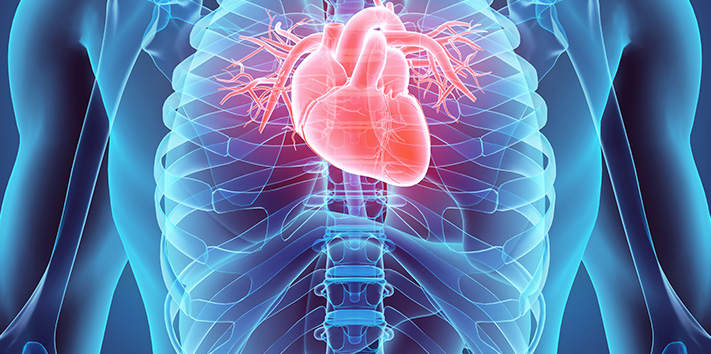
The heart is the center of the cardiovascular system. This organ, which is the size of a closed fist, is responsible for supplying blood to various parts of the body. Considering the importance of the task it performs, the heart deserves special attention and care to ensure that it functions smoothly.
Cardiovascular professionals around the world offer some suggestions to help one keep their heart in good health. Some of them are:
Even one cigarette a day dramatically increases the risk of heart attack, stroke and other serious conditions.
Just 30 minutes of brisk walking reduces the risk of cardiovascular disease.

Normal body mass index (BMI) ranges from 18.5 to 24.9 kg/m2. A BMI higher than 27 is considered overweight, while a BMI higher than 30 indicates obesity.
Prioritize foods that are low in saturated fat, cholesterol and trans fat. Eat plenty of fruits, vegetables, nuts, seeds, and legumes such as chickpeas and lima beans
Ask your doctor about the ultra-sensitive C-reactive protein (us-CRP) blood test. Elevated us-CRP levels are related to an increased risk of heart attack, stroke, peripheral vascular disease (PVD) and restenosis of coronary arteries after an interventional procedure.
People with diabetes, especially women, are at higher risk of cardiovascular disease because diabetes increases other risk factors, such as elevated cholesterol and blood pressure levels. Keeping diabetes under control is essential to maintaining a healthy heart.
Normal blood pressure should be below 120/80 mm/Hg. High blood pressure increases the risk of heart attack, heart failure and stroke. Those diagnosed with high blood pressure must aim to lower their blood pressure to less than 140/80 mm/Hg. Those with high blood pressure along with diabetes or kidney disease must aim to bring their blood pressure down to less than 130/80 mm/Hg. To learn which blood pressure level is right for you, consult your doctor.

Total cholesterol should be less than 200 mg/dL. Triglycerides should be less than 150 mg/ dL. LDL cholesterol, the ‘bad’ cholesterol, should be under 130 mg/dL for most people. LDL should be less than 100 mg/dL for those with a high risk of heart and blood vessel (cardiovascular) disease, such as some patients with diabetes or those who have multiple risk factors. For patients who already have cardiovascular disease, the goal may be less than 70 mg/dL. To know which cholesterol level is right for you, you can consult your doctor.
Simultaneously, along with keeping a healthy heart, make sure that you know the symptoms of a heart attack. You are advised to seek immediate medical attention if you experience the following symptoms for longer than five minutes and they are not relieved by rest or medication: pain or discomfort in the center of the chest or other areas of the upper body, including the arms, back, neck, jaw or stomach. Other symptoms can include shortness of breath, breaking out in a cold sweat, nausea or light-headedness. Seeking treatment should not be delayed at all.
Remember: It is never too late to take your heart health seriously and make it a priority.
You are about to be redirected to an online retailer’s website. Getz Pharma is not liable for any data exchange on the new website
You will be redirected in 3secs
Disclaimer: "This message (including attachment) is intended solely for the use of the individual or entity whom it is addressed and may contain information that is confidential or privileged. If you are not the intended recipient of this message, you are hereby notified that any use, dissemination, distribution or reproduction of this message is prohibited and that, you must not take any action in reliance on it. E-mail transmission cannot be guaranteed to be secure or error-free as information could be intercepted, corrupted, lost, destroyed, arrived incomplete or contain viruses; therefore Getz Pharma (Private) Limited cannot accept legal responsibility for the contents of this message. If you have received this communication in error, please notify the sender or Getz Pharma (Private) Limited at [email protected] immediately and destroy the original message."
Close